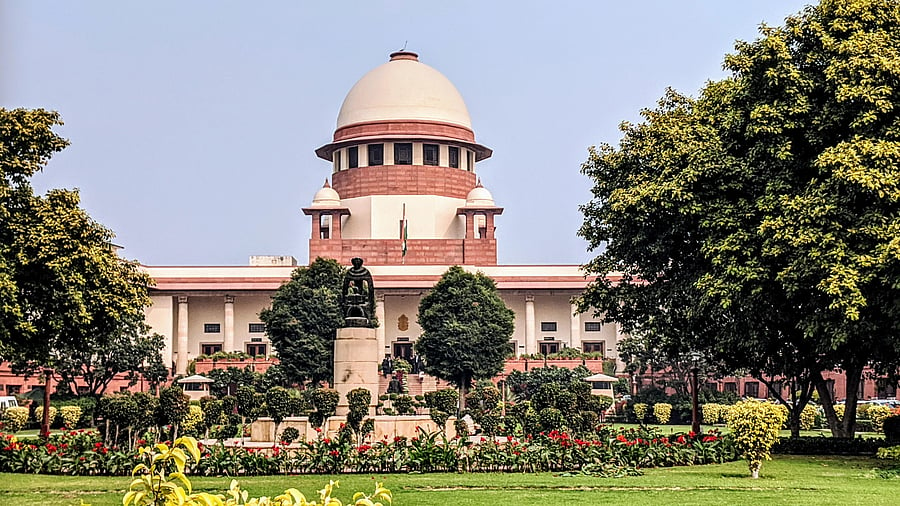
The Supreme Court of India.
Credit: iStock
New Delhi: The Karnataka government on Tuesday told the Supreme Court that the President and Governors are merely “titular heads,” bound to act on the aid and advice of the Council of Ministers at both the Centre and the States. It also emphasized that the ultimate responsibility for making laws rests with the Legislature.
On the eighth day of hearings in the Presidential Reference case, the Congress-ruled Karnataka government argued that “the President and the Governor are the titular heads, bound by the aid and advice of the Council of Ministers. This fundamental principle of governance in India has been upheld by the Supreme Court in several judgments.”
Senior advocate Gopal Subramanium, representing Karnataka, urged the five-judge Constitution Bench led by Chief Justice of India B R Gavai to dismiss the Presidential Reference. He contended that if the President and Governors acted against the aid and advice of the Council of Ministers, they would not be upholding the Constitution, but subverting it.
Subramanium further stressed that ultimate sovereignty lies with the people. “Parliamentary democracy is the expression of collective will, manifested through the Legislature. The Executive is drawn from the Legislature and is answerable to it. Government is never severed from popular consent. The ultimate responsibility to make laws rests with the Legislature,” he said.
He argued that allowing the Governor unfettered discretion would effectively transform the office into an “all-pervading constitutional authority,” a role not envisaged by the Constitution. He also clarified that Governors do not have an unqualified veto and must act promptly—“as soon as possible,” not “as soon as convenient”—on Bills passed by the state legislature.
“The Governor’s satisfaction for acting on bills is essentially the satisfaction of the council of ministers,” he added.
Senior Advocate Arvind Datar, representing the Punjab government, argued that the Supreme Court had already addressed all constitutional issues raised in the present Reference during the Tamil Nadu Governor case. “The division bench of Justices J B Pardiwala and R Mahadevan did not strike down any constitutional provision, but merely interpreted Articles 200 and 201 to introduce timelines that enhance constitutional governance,” Datar pointed out.
He explained that a Governor has only three options regarding a Bill: to grant assent, withhold assent, or refer the Bill to the President. “He has no independent discretion,” Datar said. He added that if setting timelines was essential for effective constitutional governance and public trust, the Supreme Court could impose them.
During the hearing, the Bench observed that while expediency is crucial in the legislative process, courts fixing timelines puts the judiciary in a difficult position. The court further noted that even if the phrase “as soon as possible” were absent from Article 200, the Governor is still expected to act swiftly and cannot question the validity of a Bill. “In urgent cases, the Governor may need to act within 24 hours,” the Bench said.
The hearing is scheduled to continue on Wednesday.
